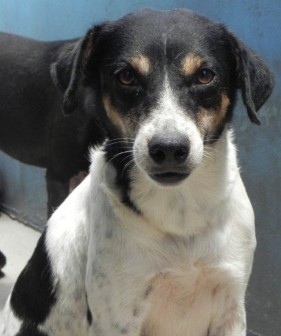Bone ailments
Continued from last week
Several bone ailments have their origin in imbalances in the animal’s metabolism (the process of constructing and breaking down body cells). One such malady is associated with the function of the parathyroid gland.
The canine parathyroids (four of them) are located in the neck close to the larger thyroid glands. These parathyroids secrete a hormone (a chemical substance that has an effect on cellular activity), which helps direct bone building function by regulating the body’s calcium levels. Calcium is also an important element in bone development. If the parathyroid hormone is excessively produced then this will have a deleterious effect on the production of new bone in young pups. An increase in the quantity of circulating parathyroid hormone would also impact negatively  on the skeletal system of adult dogs, namely by softening and weakening already established bone. It may also be of interest to note that calcium and other elements, notably phosphorus, relate to each other. For example, the concentrations of calcium and phosphorus in the blood stand in an inverse proportion.
on the skeletal system of adult dogs, namely by softening and weakening already established bone. It may also be of interest to note that calcium and other elements, notably phosphorus, relate to each other. For example, the concentrations of calcium and phosphorus in the blood stand in an inverse proportion.
 A high blood (serum) level of calcium results in a decrease of phosphorus in the blood (and vice versa). It is therefore clear that if the parathyroid glands are dysfunctional, then there could be an imbalance in the calcium/phosphorus deposits in the bone.
A high blood (serum) level of calcium results in a decrease of phosphorus in the blood (and vice versa). It is therefore clear that if the parathyroid glands are dysfunctional, then there could be an imbalance in the calcium/phosphorus deposits in the bone.
There is a condition (primary hyperthroidism) whereby one (or more) parathyroid gland becomes enlarged (tumour). Obviously more parathyroid hormone will be produced.
This will result in the demineralization of the bones. One can see the effects via an X-ray picture. The long bones look as if they have holes in them. Of course, because of the demineralization (lack of calcium) the bones can break easily. The best way to solve this problem is to surgically remove the offending (tumorous) parathyroid gland.
Again, within the context of other organs influencing the well-being of bones we must mention the kidneys. Any longstanding (chronic) kidney disease that causes the retention of phosphorus in the blood will impact upon the calcium levels (as was mentioned above). So, if the faulty kidney function results in the increased phosphorus levels in the blood, then we can expect the calcium level to sink. This results in the parathyroid gland producing more hormone. In order to do so, it will increase in size and become a tumour with all the negative effects described in the previous paragraph.
Over the last few years, veterinarians are witnessing a distinct up-surge of musculoskeletal problems at birth or emerging soon thereafter in puppies. Some of us believe that the relatively high incidence of this phenomenon has to do with the ‘puppy factories which are proliferating. In order to supply cute puppies for the high demand from persons wanting to present animal gifts to children, so-called dog ‘breeders’ are pressing fluffy bitches to produce fluffy puppies continuously and without a rest. Since the mother dogs are not being fed optimally, they develop reproductive fatigue and the offspring are being born with visible structural deficiencies. When one adds the ‘incest’ factor into the ‘breeding’ programme(?), one can pretty much be assured that the emerging puppies will exhibit problems in their muscles and skeletons – and in other organs as well. The Guyana Veterinary Association (GVA) and the Guyana Society for the Prevention of Cruelty to Animals (GSPCA) and the Ministries of Legal and Home Affairs are going to have to take a more proactive stand on this matter. More about this later.
Next week, we’ll deal with the issue of nut-rition and how that affects the bones (structure and development) of our canine and feline wards.
Please implement disease preventative measures (vaccinations, routine dewormings, monthly anti-heartworm medication, etc) and adopt-a-pet from the GSPCA’s Animal Clinic and Shelter at Robb Street and Orange Walk, if you have the wherewithal to care well for the animals. Do not stray your unwanted pets, take them to the GSPCA’s Clinic and Shelter instead. If you do not wish your pet to have puppies or kittens, you may exploit the GSPCA’s free spay and neutering programme. If you see anyone being cruel to an animal, or if you need any technical information, please get in touch with the Clinic and Shelter by calling 226-4237.




